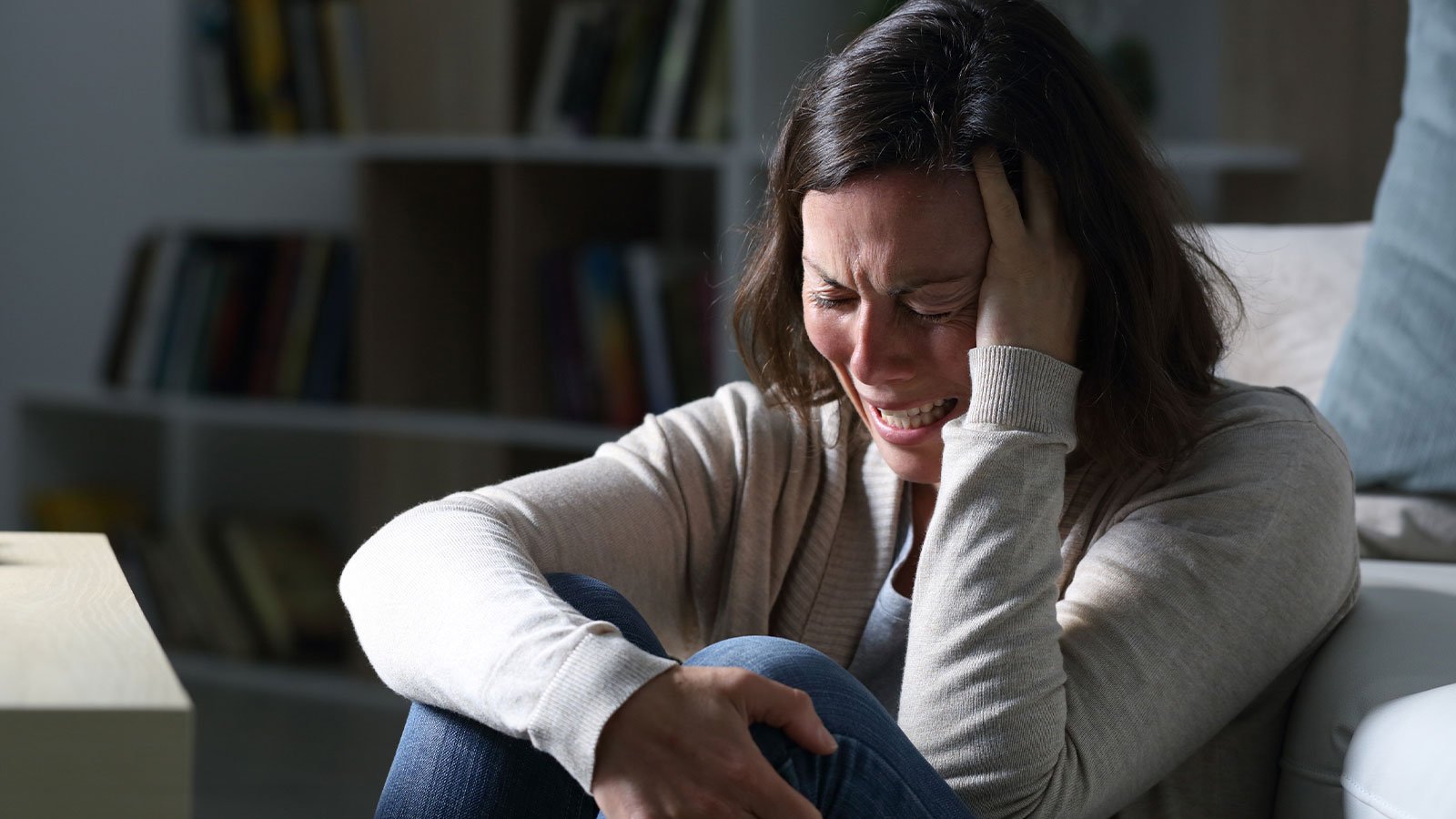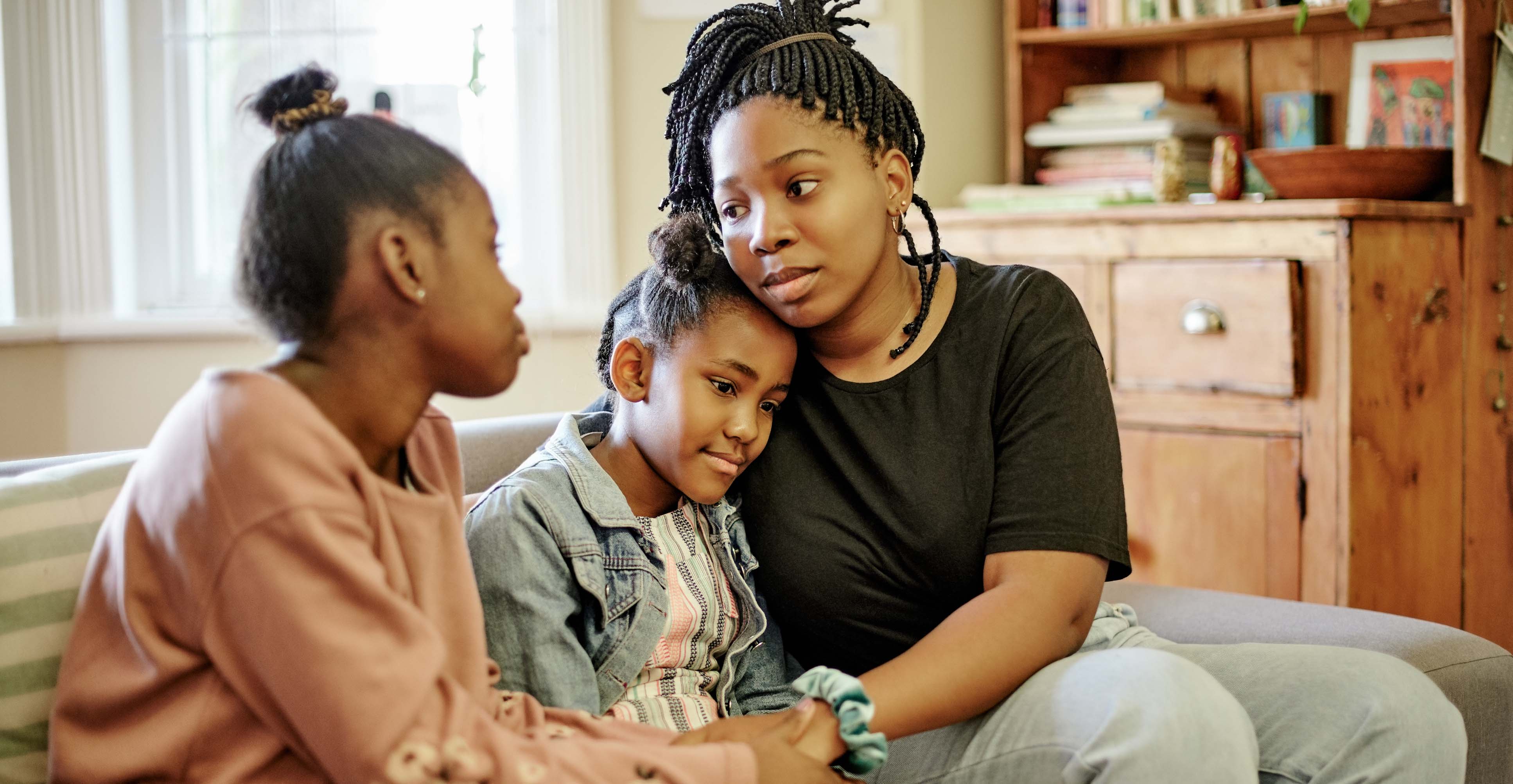The Emotional Journey of Losing a Parent as an Adult

When Guenn’s mother was in her mid-90s she began having panic attacks, so Guenn quit her job and moved in with her. At age 98, her mom broke her hip but was able to recover at home and walk again. She lived to be 106. Guenn had been preparing for her mother’s death for years, but the death still hit her hard. She says,
I was surprised at how intense the grief was. I knew it would be hard, but not this hard. I just missed her so much. And of course my daily routine was wrapped around taking care of her. I still didn’t expect it to be so intense, but it was, and there was nothing I could do other than cry.
Many, like Guenn, are shocked at how emotionally difficult it is to lose a parent as an adult. No matter how long you have to prepare for their death—and regardless of whether the death comes suddenly or is long-expected—it will be one of life’s most difficult losses.
Why this can be one of life’s most difficult losses
Imagine yourself as an actor who has been playing a role as a supporting cast member for years. The script is familiar. But not the kind of familiarity that makes you feel bored; it’s a familiarity that gives you security. That security allows you the freedom to explore being the best actor you can be. You’ve embodied the part so well you almost don’t need a script. But then, without warning, the lead character leaves the show. You will now be in the lead role. You’re still the same actor, but now the spotlight shines on you in a way that seems to change everything.
That is, in part, what it feels like to lose a parent as an adult. You’ve been playing the role of an adult for years—showing up for work, raising kids, making decisions, navigating life like an adult is supposed to. The script feels familiar. You know how the scene goes. Shouldn’t you be able to stand on your own? Why does losing a parent suddenly make you feel like a child?
 Many think to themselves, I’m an adult, I shouldn’t be taking this so hard. It’s not like I rely on my parents like I would have as a child. While that may be true, it is still an incredibly difficult loss for several reasons.
Many think to themselves, I’m an adult, I shouldn’t be taking this so hard. It’s not like I rely on my parents like I would have as a child. While that may be true, it is still an incredibly difficult loss for several reasons.
Losing a parent is unique in that it’s like losing a part of yourself. They were like an archive of your life. They carried your beginnings in their memory—knowing things about you before you even developed your own identity. This is why it feels like a piece of you has died—it kind of has. A version of you existed that only your parents held. Their absence can shake your sense of identity, because no one else saw your whole story the way they did.
This is why many who lose a parent will use words like “adrift.” Zori, who lost her mother, referred to her mom as a “secure base.” Even though she lived in Texas and her mother in Puerto Rico, her mother was still an anchor for her identity. Zori says,
Even if I lived in another country, I knew I could call her. I took for granted that she was there, because she was always there. She would send me 20 messages per day, about anything. Our communication was constant. When she was gone, it put a void in my life. I had no secure base.
When both parents are gone, you may suddenly find yourself at the top of the family tree—an unfamiliar and unsettling place. Sonya’s dad had been the glue keeping her extended family together. When he passed away, the baton fell to her. She shares:
My father was the nucleus of nieces and nephews, really of everybody. It was through him that we all bonded. So I had to make that adjustment to make sure that as he would reach out to everybody, now I would reach out to everybody and keep us together as an extended family.
Another difficulty is that the loss of a parent may bring unresolved conflicts or emotions to the surface. It is possible that you’re mourning not only the death of a parent, but also the relationship you wish you had. When a parent dies, it can stir up complicated memories. You may feel a mix of sorrow, love, regret, and even relief. Grief expert Melissa Brown says it well:
People are often surprised by the conflicting emotions they feel when an abusive parent or spouse dies. They assume they should only feel relief, yet they also experience immense grief and sadness. This isn’t surprising—despite the pain, there was still a relationship, an attachment. We often hold out hope that the person will change, seek forgiveness, or make amends. When they die, that hope dies with them. Yet, because others assume relief is the only natural response, the griever may not feel supported in their loss. Even when a relationship was painful, its absence still leaves a void.
Whether your relationship with a parent was healthy, difficult, or somewhere in between, one thing is certain. As an adult, you carry this differently than a child would. When a child loses a parent, typically others step in to care for them. Unlike a child, who is cared for in loss, an adult is often left to shoulder both the grief and the responsibilities that come with it. All of this can leave you feeling isolated and directionless.
Perhaps you can identify with these words from Tom:
I felt like I didn't have any purpose any longer. In my mind, my purpose was taking care of my mom and my dad as they got older. And now they aren’t here anymore. So if they aren’t here anymore, then why am I here? And it took me a long time to wrestle with that. I went through a significant portion of time where I just felt like I wanted to die. That was the easy thing to do. So I could just go be with my mom and dad again. We were very close. I thought of them as friends, not just parents. It was a real challenge for me to figure out why I was still here.
Grief in adulthood can feel isolating and directionless
Tom felt directionless because he felt like his purpose had been fulfilled. Others express the sharp loneliness of being “unparented.” Nora, whose parents died within four months of one another, shared, “When that door is shut, and there’s no mama and there’s no daddy, and you’re the only child, I had a sudden overwhelming feeling of being alone. And alone, to me, equated to being an orphan.” Similarly, Stacy’s parents died within a short period of time. It left her like a compass without direction:
It was like a dark cloud hovering over my head and feeling orphaned. I wondered, Who am I? It became so loud in my ear that it caused me to make decisions that were not favorable for me going forward. It caused me to sink deeply into a depressive state, because I felt like no one understood what I was experiencing, even if I tried to explain it. I really felt like the needle on a compass, just going wayward with no clear direction in mind. And I couldn’t slow that down in my mind. I couldn’t figure out what I was supposed to do. How was I supposed to navigate by myself?
 Not only do you feel isolated and directionless, your new role “atop the family tree” adds even more pressure. The stress of this may lead to asking ultimate questions as you begin to face your own mortality. Sonya expresses what many feel: “Their death made me think about my own mortality and what life I wanted to live while I’m still alive.”
Not only do you feel isolated and directionless, your new role “atop the family tree” adds even more pressure. The stress of this may lead to asking ultimate questions as you begin to face your own mortality. Sonya expresses what many feel: “Their death made me think about my own mortality and what life I wanted to live while I’m still alive.”
The loss of a parent is an emotionally difficult journey. But as questions of your own mortality spring up, it may also open up the deeper hope that God offers.
Yet, in the face of such a difficult, life-altering event, you might not be sure what you think about God right now. He may even be the last person you want to consult. That’s where Stacy was at after her mom died:
My relationship had been severed with God when my mother died. At least the relationship I previously had with Him had been severed. The relationship, as I knew it, was shattered because I was shattered. I didn’t want to talk to Him. I didn’t want to hear anything He had to say. I had pretty much stopped going to church.
But that wasn’t the end of Stacy’s story. She eventually found help through a GriefShare support group. She was able to see that death is not the end of the story, that there is reason for hope. She also learned that being an orphan wasn’t her real identity, as Jesus promises, “I will not leave you as orphans; I will come to you” (John 14:18).
Your feelings are normal
The death of a parent will leave an indelible mark on your story. No matter how much time you had to prepare, or how strong you thought you were, their absence will likely touch you more deeply than you might have expected. This can be true if you had a deep and meaningful relationship with your parents—or even if you never had that with them. It is normal for you to feel a strange mix of emotions as you step into a world without them. And you aren’t alone if you feel a little lost without them.
If you’re feeling isolated, overwhelmed, or unsure of how to move forward, you’re not alone. That’s why communities like GriefShare exist. GriefShare groups offer a space where you can be honest about your grief, connect with others who understand, and discover a path forward—one step at a time. Find your group at griefshare.org.


